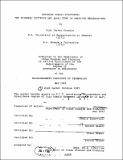| dc.contributor.advisor | Alan Brinkley. | en_US |
| dc.contributor.author | Donahue, Hugh Carter | en_US |
| dc.contributor.other | Massachusetts Institute of Technology. Dept. of Urban Studies and Planning. | en_US |
| dc.date.accessioned | 2012-09-27T15:16:54Z | |
| dc.date.available | 2012-09-27T15:16:54Z | |
| dc.date.copyright | 1985 | en_US |
| dc.date.issued | 1985 | en_US |
| dc.identifier.uri | http://hdl.handle.net/1721.1/73267 | |
| dc.description | Thesis (Ph. D.)--Massachusetts Institute of Technology, Dept. of Urban Studies and Planning, 1985. | en_US |
| dc.description | MICROFICHE COPY AVAILABLE IN ARCHIVES AND ROTCH. | en_US |
| dc.description | Bibliography: leaves 301-314. | en_US |
| dc.description.statementofresponsibility | by Hugh Carter Donahue. | en_US |
| dc.format.extent | 2 v. (314 leaves) | en_US |
| dc.language.iso | eng | en_US |
| dc.publisher | Massachusetts Institute of Technology | en_US |
| dc.rights | M.I.T. theses are protected by
copyright. They may be viewed from this source for any purpose, but
reproduction or distribution in any format is prohibited without written
permission. See provided URL for inquiries about permission. | en_US |
| dc.rights.uri | http://dspace.mit.edu/handle/1721.1/7582 | en_US |
| dc.subject | Urban Studies and Planning. | en_US |
| dc.title | Defining public discourse : the Fairness Doctrine and Equal Time in American broadcasting | en_US |
| dc.type | Thesis | en_US |
| dc.description.degree | Ph.D. | en_US |
| dc.contributor.department | Massachusetts Institute of Technology. Department of Urban Studies and Planning | |
| dc.identifier.oclc | 13406408 | en_US |
